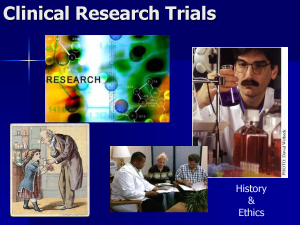 The US$ 64 billion global clinical research industry is observing a transition since life science companies are turning toward emerging markets in Asia, Latin America and Eastern Europe, to pursue clinical research. Increasing costs, declining productivity and rising drug development timelines are combined with the strategic advantages offered by these emerging destinations. The bigwigs of pharma business in world are getting ready to go to new markets, for conducting their clinical researches and trials beyond the so called established markets. In the pharma world firms are redesigning functions, implementing new structures and re-engineering flows of goods and services to reduce costs and improve business processes.
The US$ 64 billion global clinical research industry is observing a transition since life science companies are turning toward emerging markets in Asia, Latin America and Eastern Europe, to pursue clinical research. Increasing costs, declining productivity and rising drug development timelines are combined with the strategic advantages offered by these emerging destinations. The bigwigs of pharma business in world are getting ready to go to new markets, for conducting their clinical researches and trials beyond the so called established markets. In the pharma world firms are redesigning functions, implementing new structures and re-engineering flows of goods and services to reduce costs and improve business processes.
Clinical research is a branch of healthcare business that determines the safety and effectiveness of medications, equipment, devices, diagnostic products, and treatment regimen, intended for human use which is used for prevention, treatment, diagnosis or for relieving symptoms of a disease. Clinical Research is different from clinical practice. In clinical practice one uses established treatments, while in clinical research evidence is collected to establish a treatment.
 The Indian Pharma business is growing at a rate of 8-9 per cent per year, the pharmaceutical industry in India is surging to reach US$50 billion by 2020. This growth has encouraged players in the Indian pharmaceutical industry to explore newer opportunities of drug research, discovery and development, promising higher capital investments in the near future. Many multinational companies have entered India to market drugs and conduct clinical trails and research. Thus, pharmaceuticals research manufacturing, and outsourcing have received a drive in the country, creating an image as a land of opportunities in the pharmaceuticals space.
The Indian Pharma business is growing at a rate of 8-9 per cent per year, the pharmaceutical industry in India is surging to reach US$50 billion by 2020. This growth has encouraged players in the Indian pharmaceutical industry to explore newer opportunities of drug research, discovery and development, promising higher capital investments in the near future. Many multinational companies have entered India to market drugs and conduct clinical trails and research. Thus, pharmaceuticals research manufacturing, and outsourcing have received a drive in the country, creating an image as a land of opportunities in the pharmaceuticals space.
The present and future of the pharma companies will see a huge R&D, sales and marketing network spread across geographies, and their infrastructural costs can grow exponentially. Therefore, pharma companies need to embrace technology that can offer dynamic lines of communication between the global markets and their manufacturing and research centres in India. Ultimately, India’s growth as a global player hinges on its ability to overcome challenges and, given the scenario outlined, integrating and facilitating cost-effective communication is a major challenge.
This implies that new pharmaceutical strategies will pursue increased Research and Development (R&D) investments ranging 15-20% in contrast to late 80’s period where classical model across was 10%. The annual budget allocation spent with clinical research organizations (CRO) is approximately $12 billion in an attempt to increase throughput, which has predominantly benefited CRO’s who have seen their turnover boost growth of 20-30% year on year.
 Indian Clinical Research focus is shifting from cost advantages to quality and rapid response. India, with second largest population in the world, and with every sixth patient in the world being an Indian, is going through an upheaval economically, socially and scientifically. Increased awareness of Good Clinical Practices (GCP) requirements, stronger desire of international acceptability of research done in India has brought favorable changes in the attitude of clinicians in India towards participation in clinical trials.
Indian Clinical Research focus is shifting from cost advantages to quality and rapid response. India, with second largest population in the world, and with every sixth patient in the world being an Indian, is going through an upheaval economically, socially and scientifically. Increased awareness of Good Clinical Practices (GCP) requirements, stronger desire of international acceptability of research done in India has brought favorable changes in the attitude of clinicians in India towards participation in clinical trials.
A land divided into rural and urban people, unmanageable population, a superfluity of diseases, and out of control poverty: this was the image India offered to the outside world till a while ago. But, this has turned out to be in favour of India as far as the clinical research is concerned. India has the largest pool of patients suffering from cancer, diabetes, tuberculosis and other maladies; all this troubles leading it to be the global hub of outsourcing of clinical trials.
More or less all the top names in the pharmaceutical world have zeroed-in on India, setting up clinical trial facilities in major cities, especially Hydearbad and Ahmedabad. Global consultancy McKinsey & Co states that global pharma majors are eying India as their hub for clinical research trials. Pharma giants are also attracted for another fact that the country offers nearly 700,000 speciality hospital beds, 221 medical colleges and skilled English-speaking medical personnel, https://www.cdhfinechemical.com/cdh_data/antibiotics-online/.
All big global pharma names like Novo Nordisk, Aventis, Novartis, GlaxoSmithKline, Eli Lilly and Pfizer have begun clinical drug trials across various Indian cities. The pace for drug trials in the country is so fast that the Clinical Data Interchange Standards Consortium (CDISC), USA, a non-profit organization committed to the development of clinical research organizations’ standards the world over, is looking at setting up its chapter in India.
 Eli Lilly: The global pharmaceutical giant has 17 large and small clinical research projects running in 40 hospitals across India.
Eli Lilly: The global pharmaceutical giant has 17 large and small clinical research projects running in 40 hospitals across India.
The company’s clinical trials are to test if Xigris, which is indicated for reduction of mortality in adult patients, can be used for sepsis. Eli Lilly has already held clinical trials involving more than 600 patients for Human Insulin and Insulin Lispro. It is also these days conducting trials on oncology, and developing a new molecule for lung cancer.
Pfizer: The pharma giant has picked up six cities in the north-eastern states of India to conduct clinical trials on 300 patients on a new malaria ‘cocktail’ drug that combines chloroquine (to which Indian malarial strains have developed resistance) and azithromycin, an antibiotic.
Pfizer is also carrying out clinical trials for drugs to treat osteoporosis, breast cancer and schizophrenia. Pfizer’s cumulative investment on clinical research in India is believed to be $13 million.
 Roche: The Swiss pharma major has set up clinical trial sites in India as part of its global trials for treatment of a particular variant of lung cancer. One of the reasons for considering India is that it has a vast patient population infected by this type of lung cancer, which is primarily triggered by use of tobacco products.
Roche: The Swiss pharma major has set up clinical trial sites in India as part of its global trials for treatment of a particular variant of lung cancer. One of the reasons for considering India is that it has a vast patient population infected by this type of lung cancer, which is primarily triggered by use of tobacco products.
India is also being considered a prospective site for Roche’s future clinical trials involving new drugs and therapies for treatment of different variants of blood cancer and colorectal diseases.
 SIRO Clinpharm: SIRO is currently conducting clinical trial projects in over 30 hospitals across the country for several clients from Europe, Japan, the United States and also India.
SIRO Clinpharm: SIRO is currently conducting clinical trial projects in over 30 hospitals across the country for several clients from Europe, Japan, the United States and also India.
The trials in India are mostly in different areas like oncology, endocrinology, traumatology, sports medicine, pulmonary diseases, pediatric diseases and infectious diseases.
 Clinigene International: The Bangalore-based Clinigene says India’s huge population allows new-drug studies to be completed much faster. Last year, when a biotechnology company from the US needed 400 diabetics for a study, Clinigene began by heading to a nearby hospital specialising in diabetes, where a dozen new patients arrive every day and more than 40,000 are in its records.
Clinigene International: The Bangalore-based Clinigene says India’s huge population allows new-drug studies to be completed much faster. Last year, when a biotechnology company from the US needed 400 diabetics for a study, Clinigene began by heading to a nearby hospital specialising in diabetes, where a dozen new patients arrive every day and more than 40,000 are in its records.
Wellquest: Wellquest,the clinical trials division of the Nicholas Piramal Group, is conducting 40 drug product tests in five cities across the country. The company has 75 beds for patients on whom clinical trials are being carried out.
Due to the favourable circumstances prevailing in the country for clinical research, the pharma industry is in the recent times is having considerable potential for logistics support. According to the Global Director, Life Sciences, TNT Express, Mr Jos Raaymakers, the market for express industry services supporting clinical research, was worth euro 100 million currently. During his recent visit to India, he told Business Line that India was among the focus markets for clinical research logistics and TNT Express hopes to not only retain but build on the relationships it has developed with contract research organisations in these markets.
having considerable potential for logistics support. According to the Global Director, Life Sciences, TNT Express, Mr Jos Raaymakers, the market for express industry services supporting clinical research, was worth euro 100 million currently. During his recent visit to India, he told Business Line that India was among the focus markets for clinical research logistics and TNT Express hopes to not only retain but build on the relationships it has developed with contract research organisations in these markets.
 DHL Express does not want to remain behind in the race, it has taken great effort to exploit the potential of this segment of the express market, and this express company has developed a range of cool-chain services to meet the needs of the life sciences industry. According to an official statement, the company has developed a patented packaging system that has been combined with Express Distribution, dry ice supplies, information systems, expert Customs clearance, validation services and project management to create a market-leading temperature-controlled logistics solution.
DHL Express does not want to remain behind in the race, it has taken great effort to exploit the potential of this segment of the express market, and this express company has developed a range of cool-chain services to meet the needs of the life sciences industry. According to an official statement, the company has developed a patented packaging system that has been combined with Express Distribution, dry ice supplies, information systems, expert Customs clearance, validation services and project management to create a market-leading temperature-controlled logistics solution.
These temperature-controlled parcels, it seems ensure safe and compliant transport in cooled, deep-frozen or protected ambient states. These companies scout not only metros but also the towns and smaller cities such as Vellore and Lucknow, which were becoming important centres for clinical research.
Till recently, Russia was one of the largest markets for clinical research and India had the potential to follow suit. However, an essential difference between logistical operations supporting clinical research in the two countries is that while analysis of samples is concerned in Russia it is done outside the country and in India, major part of the analysis is carried out domestically.
Clinical research in a market is driven by three important requirements — sizable patient population, the presence of quality investigators and contract research organisations. Even as the clinical outsourcing boom is beginning to explode, the Indian government is all set to further boost it. Officials in the health ministry might now consider giving permissions to pharmaceutical companies to conduct simultaneous trials in India and overseas.
The ministry is considering amending the Drugs and Cosmetics Rules to do away with the condition that there should be a phase lag between India and the rest of the world in clinical trials.












































